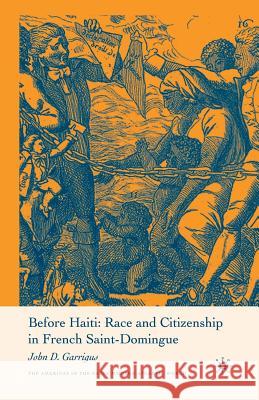Before Haiti: Race and Citizenship in French Saint-Domingue » książka
topmenu
Before Haiti: Race and Citizenship in French Saint-Domingue
ISBN-13: 9781349532957 / Angielski / Miękka / 2010 / 397 str.
Before Haiti: Race and Citizenship in French Saint-Domingue
ISBN-13: 9781349532957 / Angielski / Miękka / 2010 / 397 str.
cena 357,16
(netto: 340,15 VAT: 5%)
Najniższa cena z 30 dni: 308,41
(netto: 340,15 VAT: 5%)
Najniższa cena z 30 dni: 308,41
Termin realizacji zamówienia:
ok. 30 dni roboczych
Dostawa w 2026 r.
ok. 30 dni roboczych
Dostawa w 2026 r.
Darmowa dostawa!
The story of Haiti's independence.











